Filter by
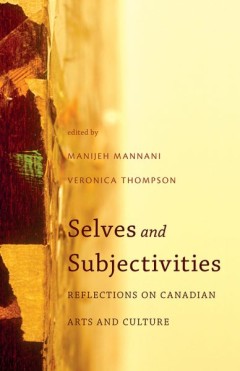
Selves and Subjectivities Reflections on Canadian Arts and Culture
As critic Diana Brydon has argued, contemporary Canadian writers are “not transcending nation but resituating it.” Drawing together themes of gender and sexuality, trauma and displacement, performativity, and linguistic diversity, Selves and Subjectivities offers an exciting new contribution to the multivocal dialogue surrounding the Canadian sense of identity.
- Edition
- -
- ISBN/ISSN
- 9781926836492.01
- Collation
- -
- Series Title
- -
- Call Number
- 275 pages
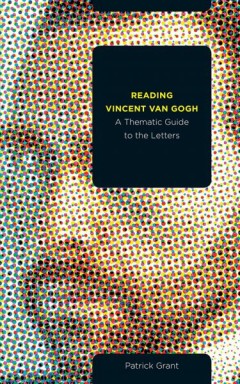
Reading Vincent van Gogh A Thematic Guide to the Letters
Reading Vincent van Gogh is at once an interpretive guide to Van Gogh’s letters and a distillation of the key themes that reoccur throughout his collected letters—foremost among them the motifs of suffering, love, imagination, and the ineffable. In this indispensable, synoptic view of the letters, Patrick Grant makes the main lines of Vincent van Gogh’s thinking accessible and displays th…
- Edition
- -
- ISBN/ISSN
- 9781771991872.01
- Collation
- -
- Series Title
- -
- Call Number
- 5 x 8, 198 pages

Of Sunken Islands and Pestilence Restoring the Voice of Edward Taylor Fletch…
Fletcher was a voracious reader of works in many languages and although he was oriented toward Britain, his writing notably reflects a gaze fixed on a horizon much further away. His work therefore stands in contrast to the tendency of later Canadian writers, who focus inward on the nation, and on issues of Canadian identity. His work as a surveyor allowed him to travel across the country, obser…
- Edition
- James Gifford
- ISBN/ISSN
- 9781771993449.01
- Collation
- -
- Series Title
- -
- Call Number
- 6x9 , 220 pages
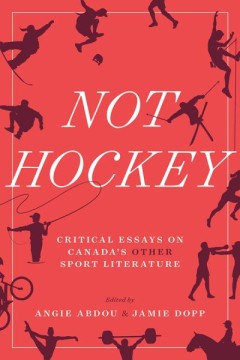
Not Hockey Critical Essays on Canada’s Other Sport Literature
Instead of a focus on what is often described as Canada’s national pastime, contributors examine sports in Canadian literature that are decidedly not hockey. From skateboarding and parkour to fly fishing and curling, these essays engage with Canadian histories and broader societal understandings through sports on the margin. Interspersed with original reflections by iconic Canadian literary f…
- Edition
- -
- ISBN/ISSN
- -
- Collation
- -
- Series Title
- -
- Call Number
- 6 x 9, 300 pages
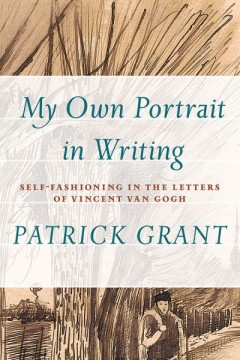
My Own Portrait in Writing” Self-Fashioning in the Letters of Vincent van …
This volume builds on Grant’s earlier analysis of Van Gogh’s correspondence, The Letters of Vincent van Gogh: A Critical Study (AU Press, 2014), a study in which he approached the letters from a literary critical standpoint, delving into key patterns of metaphors and concepts. In the present volume, he provides instead a literary theoretical analysis of the letters, one that draws them more…
- Edition
- -
- ISBN/ISSN
- 9781771990455.01
- Collation
- -
- Series Title
- Cultural Dialectics
- Call Number
- 220 pages
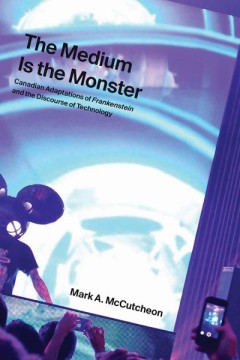
The Medium Is the Monster Canadian Adaptations of Frankenstein and the Disco…
Technology, a word that emerged historically first to denote the study of any art or technique, has come, in modernity, to describe advanced machines, industrial systems, and media. McCutcheon argues that it is Mary Shelley’s 1818 novel Frankenstein that effectively reinvented the meaning of the word for modern English. It was then Marshall McLuhan’s media theory and its adaptations in Cana…
- Edition
- -
- ISBN/ISSN
- 9781771992244.01
- Collation
- -
- Series Title
- -
- Call Number
- 6 x 9, 248 pages
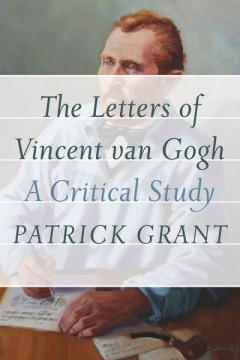
The Letters of Vincent van Gogh A Critical Study
As Grant demonstrates, quite apart from furnishing a highly revealing self-portrait of their author, the letters are compelling for their imaginative and expressive power, as well as for the perceptive commentary they offer on universal human themes. Through a subtle exploration of van Gogh’s contrastive style of thinking and his fascination with the notion of imperfection, Grant illuminates …
- Edition
- -
- ISBN/ISSN
- 9781927356746.01
- Collation
- -
- Series Title
- Cultural Dialectics
- Call Number
- 254 pages
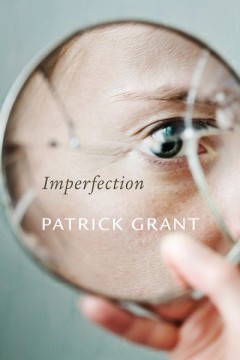
Imperfection
Known for his exploration of the relationship between Buddhism and violent ethnic conflict in modern Sri Lanka, as well as his contribution to the study of Northern Ireland and the complex relationships among religion, literature, and ethnicity, Grant provides the reader with an analysis of the widespread rise of religious extremism across the globe. Referencing Plato, Van Gogh, Jesus, and the …
- Edition
- -
- ISBN/ISSN
- 9781926836751.01
- Collation
- -
- Series Title
- Cultural Dialectics
- Call Number
- 240 pages
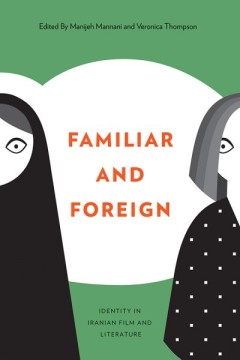
Familiar and Foreign Identity in Iranian Film and Literature
The current political climate of confrontation between Islamist regimes and Western governments has resulted in the proliferation of essentialist perceptions of Iran and Iranians in the West. Such perceptions do not reflect the complex evolution of Iranian identity that occurred in the years following the Constitutional Revolution (1906–11) and the anti-imperialist Islamic Revolution of 1979.…
- Edition
- -
- ISBN/ISSN
- 9781927356869.01
- Collation
- -
- Series Title
- -
- Call Number
- 272 pages

Selves and Subjectivities Reflections on Canadian Arts and Culture
As critic Diana Brydon has argued, contemporary Canadian writers are “not transcending nation but resituating it.” Drawing together themes of gender and sexuality, trauma and displacement, performativity, and linguistic diversity, Selves and Subjectivities offers an exciting new contribution to the multivocal dialogue surrounding the Canadian sense of identity.
- Edition
- -
- ISBN/ISSN
- 9781926836492.01
- Collation
- -
- Series Title
- -
- Call Number
- 275 pages
 Computer Science, Information & General Works
Computer Science, Information & General Works  Philosophy & Psychology
Philosophy & Psychology  Religion
Religion  Social Sciences
Social Sciences  Language
Language  Pure Science
Pure Science  Applied Sciences
Applied Sciences  Art & Recreation
Art & Recreation  Literature
Literature  History & Geography
History & Geography